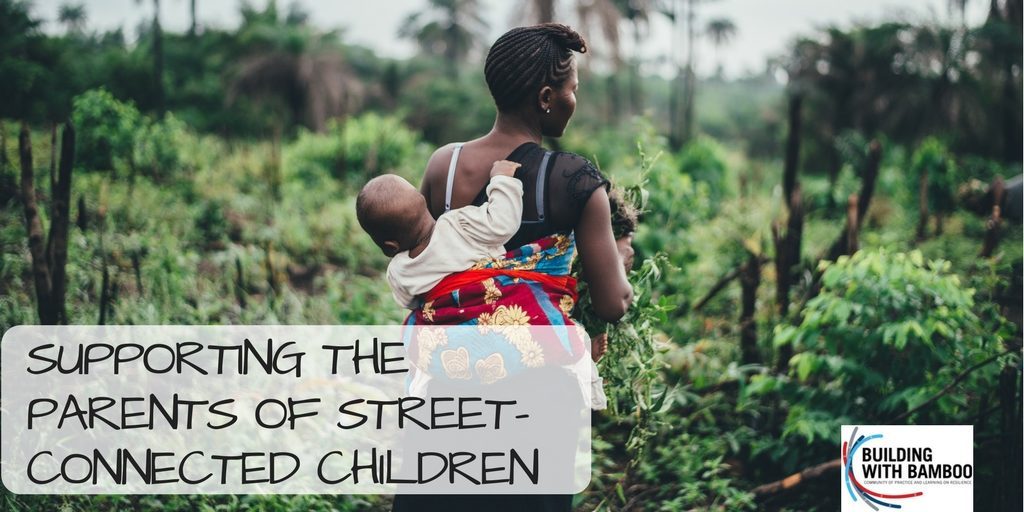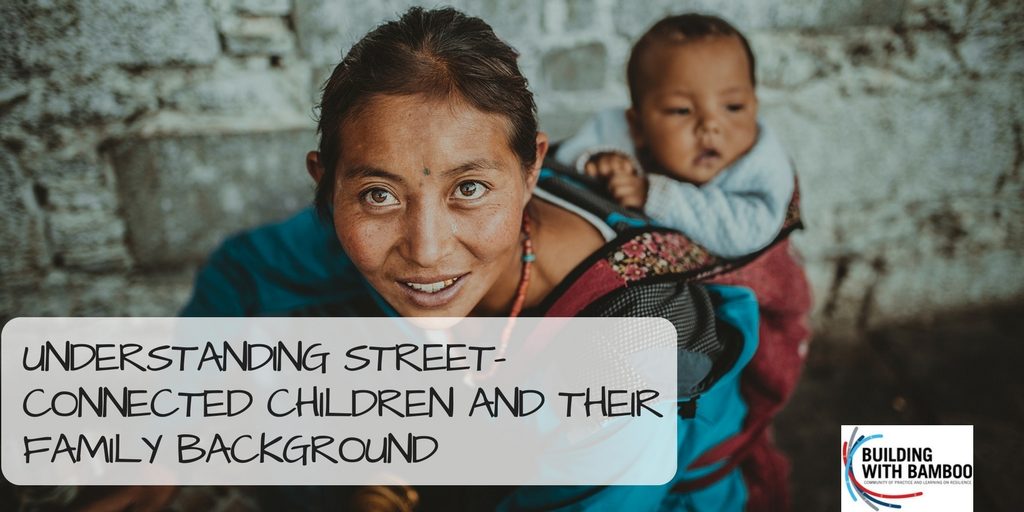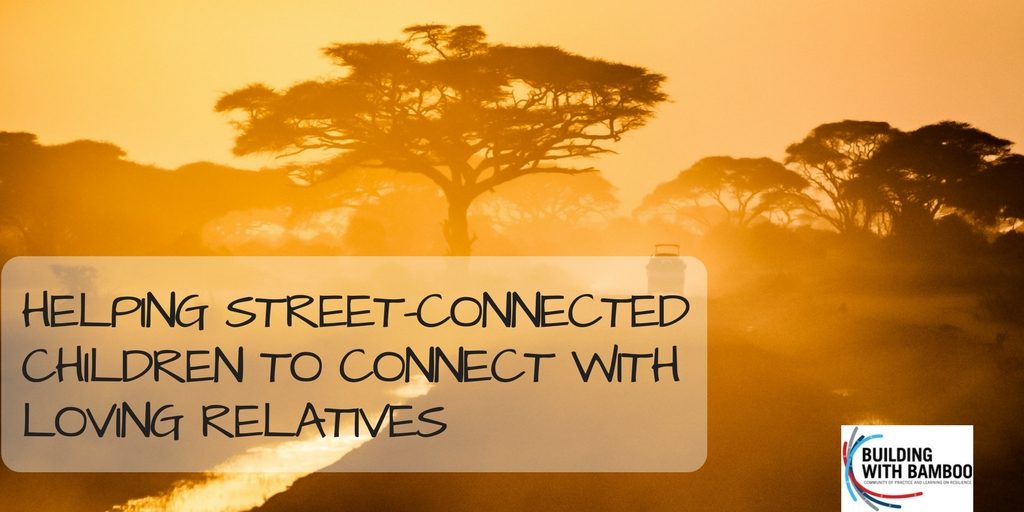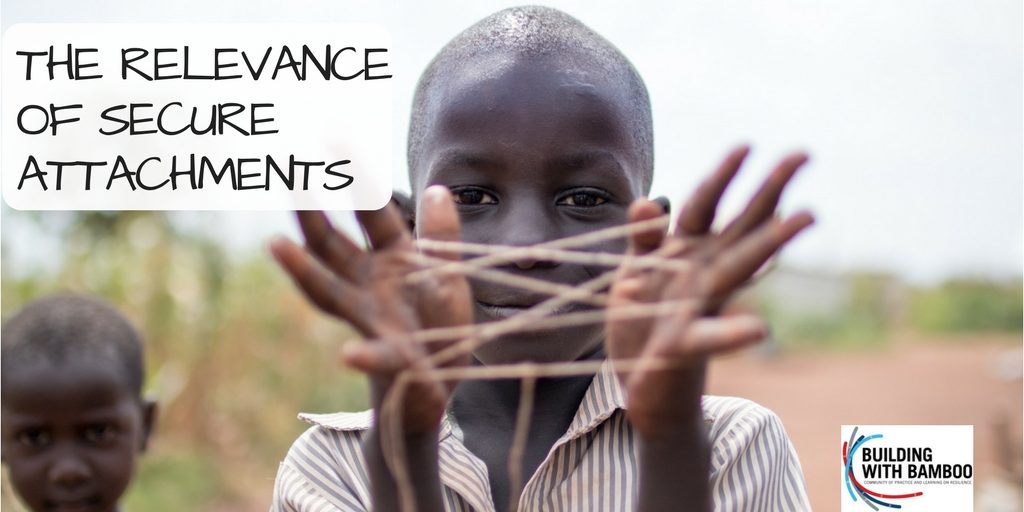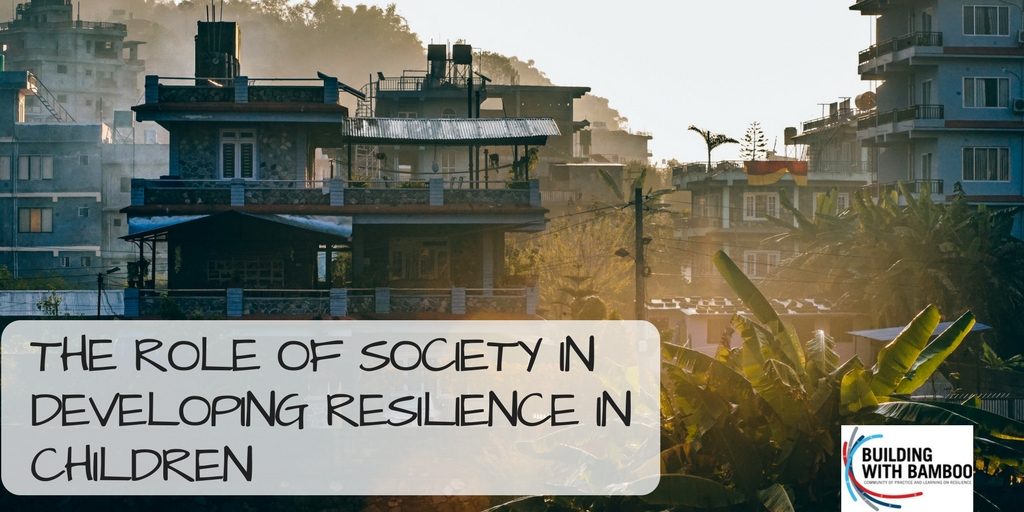The Building with Bamboo Team
Meet The Resilience Champions
At the heart of the Building with Bamboo team are the Resilience Champions. Martha, Alfred and Krishna are leading learning projects on the ground in their organisations.
Building Resilience for Sustainable Futures
Homes and communities of street-working children in peripheral neighbourhoods around Guayaquil, Ecuador
JUCONI Ecuador have been working with families affected by violence, including sexual violence, in Guayaquil for over 20 years. As an organisation with established strengths and resilience-based approach, JUCONI’s learning pilot did not involve introducing new concepts, but rather drew on the Bamboo 1 research by piloting new methods. A new programme of peer support between older children and young people who had ‘graduated’ through the JUCONI program and children who were currently being supported drew on findings from Bamboo 1 which highlighted the importance of informal actors in helping children cope with adversity. In addition, JUCONI will be piloting formal resilience scales to explore how these might help promote resilience, and what we can learn from such tools when developing service responses.
Martha Espinoza
Martha is the Executive Director of JUCONI Ecuador and has worked for the organisation for over 17 years. As an experienced child psychologist and practitioner, Martha brings technical knowledge to the project. She is working with Merli Lopez. Coordinator of their Working Child and Family Programme, to deliver the project in Ecuador.
Reinforcing Resilience Programme
Jinja District, Uganda, with some home follow-up work being done across other nearby districts
Having worked with street-living and street-working children in Jinja, Uganda since 2008, SALVE International support children on the street as well as offer family reintegration support. SALVE’s pilot was co-designed by children themselves. Through a program of activities including dance, music, drama and sport, SALVE built relationships between children and their wider community, building on the Bamboo 1 findings highlighting the importance of non-formal actors (community contacts) and promoting children as actors in their lives, not passive victims. Alongside the child-led activity programme, SALVE used the Bamboo 1 findings to develop new tools and approaches and build staff capacity.
Alfred Ochaya
Before becoming Resilience Champion full time, Alfred was the Street Outreach and Drop-In Centre Manager at SALVE. He is a qualified social worker, and volunteers in his spare time for the Red Cross doing a variety of health training, including sexual health, for young people in the community. Alfred is a Street Invest global trainer with many years experience in hands-on street work and leading teams.
Promoting Resilience of Child Domestic Workers in Kathmandu
In and around Kathmandu Valley, Nepal
CWISH work with child domestic workers in Kathmandu, offering rescue and rehabilitation, counselling and family reintegration support. They also offer drop-in services for child domestic workers and support for them to attend school. Over the course of this project, CWISH explored ways to incorporate learning from Bamboo 1 – for which CWISH was a research site – into their ‘Exit Strategy’ approach to removing CDWs from harm, and trialling resilience based approaches in their drop-in and supported learning interventions. They also worked with formal and informal stakeholders such as the police, authorities and local community members such as market traders. An important finding from the Bamboo 1 research at CWISH was that religious and spiritual festivals are important in helping children to feel included and supported. For this reason CWISH incorporated cultural events and festivals in to their pilot.
Krishna P. Subedi
Krishna is CWISH’s team leader, the coordinator of the senior management team. He has experience in research and practice, and expertise in child protection, particularly in relation to child labour and child sexual abuse. He has worked in child rights and child protection in Nepal for 15 years, for national and international organisations, including UNICEF.
Beth Plessis
Development and Sustainability Manager

